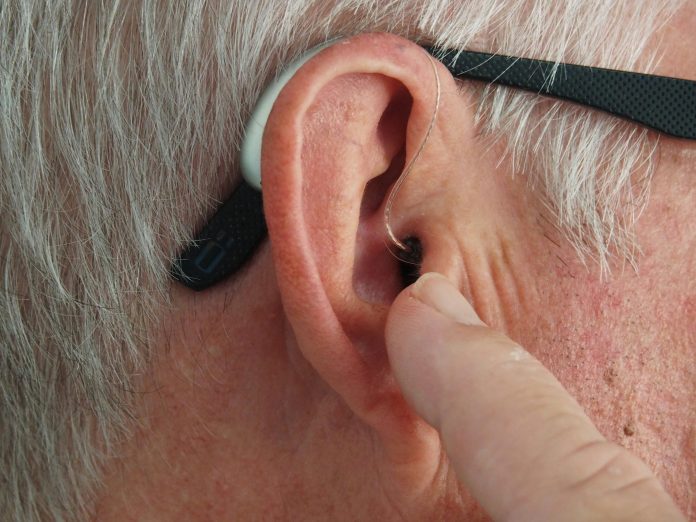Essential oils have emerged as a natural remedy for many health conditions, including managing and treating ear infections. Certain essential oils can offer a complementary approach to traditional medical treatments with their potent antibacterial, antiviral, and anti-inflammatory properties. This article delves into the efficacy of essential oils for ear infections, providing insights based on scientific research and anecdotal evidence.
Introduction
Ear infections can be painful and frustrating, affecting adults and children. Traditional treatments often include antibiotics or antiviral medications, but increasingly, people are turning to natural remedies like essential oils to find relief. This article explores the best essential oils for ear infections, their benefits, and how to use them safely and effectively.
Understanding Ear Infections
Ear infections are a common health issue characterized by inflammation and infection within the ear canal. They can cause various symptoms, from mild discomfort to severe pain.
Signs and Symptoms
Common signs include pain, swelling, redness, and sometimes, fever. It’s crucial to recognize these early to manage the infection effectively.
Causes of Ear Infections
Bacteria or viruses typically cause ear infections. Factors such as allergies, colds, sinus infections, and wax buildup can affect their development.
How Essential Oils Can Help
Essential oils can play a role in managing ear infections due to their antibacterial and anti-inflammatory properties. They can help reduce pain, fight disease, and promote healing.
The Best Essential Oils for Ear Infections
Several essential oils are highlighted for their effectiveness against ear infections, including tea tree, lavender, oregano, and basil oils. Each has unique properties that can help combat disease and soothe symptoms.
Tea Tree Oil
Tea tree oil is renowned for its antimicrobial properties, making it effective against the bacteria and viruses that cause ear infections.
Lavender Oil
Lavender oil is celebrated for its anti-inflammatory and calming effects, which can help soothe ear pain and reduce inflammation.
Zeneara Silence Ear Ringing Now Click Here to Buy
How to Use Essential Oils Safely for Ear Infections
It’s imperative to dilute essential oils with carrier oil before use and to avoid inserting them directly into the ear canal. This section offers safe application methods and dosages.
Safe Application Methods:
When using essential oils for ear infections, it’s vital to employ safe application methods to prevent any adverse reactions. One common approach is diluting the essential oil with a carrier oil like coconut oil or olive oil. This helps reduce the oil’s potency and minimizes the risk of irritation.
Topical Application:
A safe and effective way to use essential oils for ear infections is through topical application. Dilute the chosen essential oil with a carrier oil and apply a small amount around the outer ear canal using a cotton ball or swab. Avoid inserting anything into the ear canal to prevent injury.
Steam Inhalation:
Another method to harness the benefits of essential oils is through steam inhalation. Add a few drops of the selected oil to a bowl of hot water, cover your head with a towel, and inhale the steam deeply. This helps clear congestion, reduce inflammation, and alleviate pain associated with ear infections.
Massage Therapy:
Gentle massage around the ears and neck area with diluted essential oils can provide relief from ear infection symptoms. Use circular motions and apply light pressure to promote circulation and drainage. This technique can help soothe pain and enhance the oil’s absorption.
Precautions and Considerations:
While essential oils offer promising benefits for treating ear infections, it’s essential to exercise caution and consult a healthcare professional, especially for severe or persistent infections. Additionally, perform a patch test before using any new essential oil to ensure you don’t have any allergic reactions.
Benefits of Using Essential Oils for Ear Health
- Antimicrobial Properties: Many essential oils possess potent antimicrobial properties, making them effective in combating bacteria, viruses, and fungi that may cause ear infections.
- Anti-inflammatory Effects: Inflammation within the ear can lead to discomfort and pain. Certain essential oils, such as lavender and chamomile, have anti-inflammatory properties that can help alleviate these symptoms.
- Pain Relief: Essential oils like tea tree oil and peppermint oil have analgesic properties, providing natural pain relief for earaches and discomfort.
- Earwax Management: Some essential oils, such as olive oil and almond oil, can help soften earwax, making it easier to remove and preventing blockages.
Conclusion
Essential oils offer a natural, complementary option for managing ear infections. Careful selection and proper usage can relieve symptoms and support the body’s healing process. Integrating essential oils into your ear care routine can be a simple yet effective way to support ear health naturally. By harnessing the power of these botanical extracts, you can promote cleanliness, comfort, and overall well-being for your ears. Remember to approach their use with caution, diluting them appropriately and seeking guidance when needed. With regular care and attention, you can nurture your ears and enhance your quality of life.
Also Read: Unraveling the Mystery: Blood Sugar Conversion to A1C Revealed!
Zeneara Silence Ear Ringing Now Click Here to Buy
Affiliate Disclosure:
The links contained in this product review may result in a small commission if you opt to purchase the product recommended at no additional cost to you. This goes towards supporting our research and editorial team and please know we only recommend high quality products.
Disclaimer:
Please understand that any advice or guidelines revealed here are not even remotely a substitute for sound medical advice from a licensed healthcare provider. Make sure to consult with a professional physician before making any purchasing decision if you use medications or have converts following the review details shared above. Individual results may vary as the statements made regarding these products have not been evaluated by the Food and Drug Administration. The efficacy of these products have not been confirmed by FDA approved research. These products are not intended to diagnose, treat, cure or prevent any disease.




